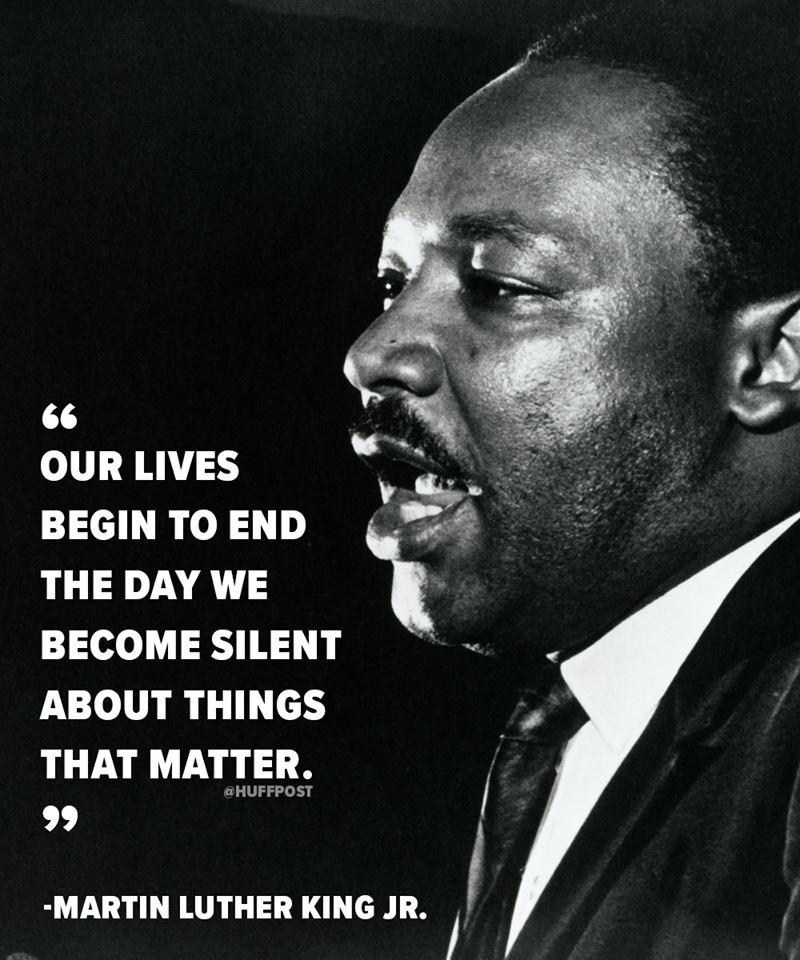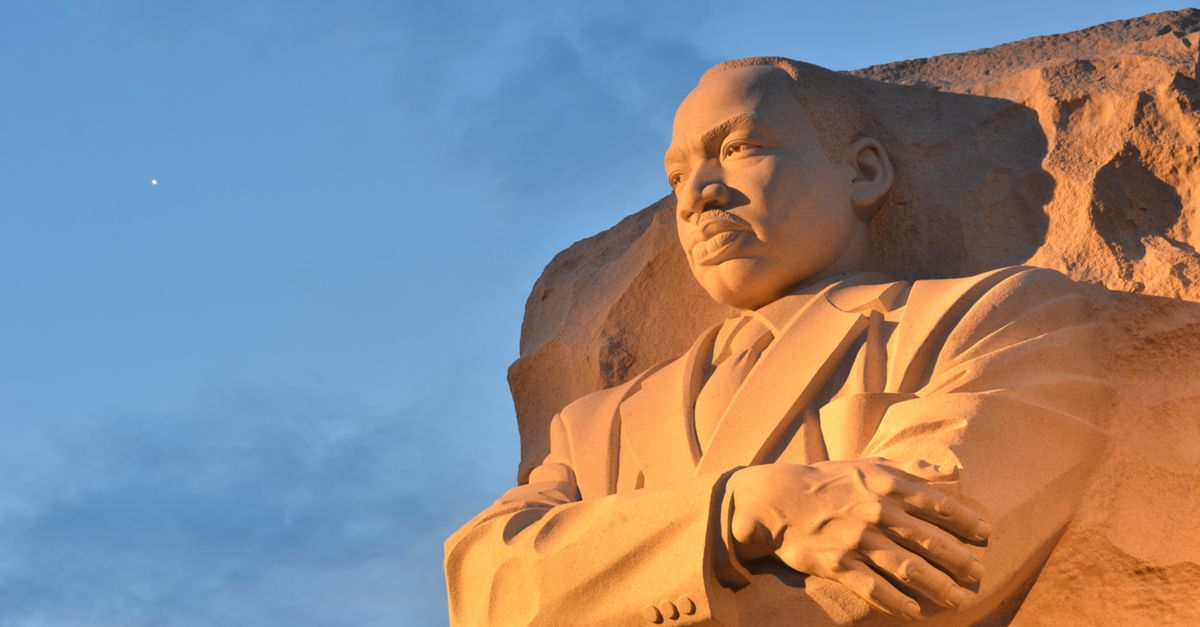Civil rights leader Dr. Martin Luther King, Jr. said a great many quotable things, but words have also been attributed to him that were not his own.
It was not really King who said, for example, "I mourn the loss of thousands of precious lives, but I will not rejoice in the death of one, not even an enemy," but rather a Facebook user whose prefatory remarks were conflated with King's when her post was copied and pasted and went viral.
Nor did King actually say or write the line, "I was a drum major for justice, peace, and righteousness," though those exact words were inscribed on a statue of MLK erected in Washington, D.C., in 2011. It was was an ill-considered paraphrase of a deeper thought King had uttered two months before he was assassinated in 1968:
If you want to say that I was a drum major, say that I was a drum major for justice, say that I was a drum major for peace. I was a drum major for righteousness. And all of the other shallow things will not matter.
The shortened version made King look like "an arrogant twit," poet Maya Angelou complained. Others agreed. Ultimately, the wording was removed from the statue.
Similarly, King never uttered the statement, "Our lives begin to end the day we become silent about things that matter," though it is abundantly cited as such every year on Martin Luther King, Jr. Day:

But while the exact quote is nowhere to be found in King's speeches or writings, it does seem to be a paraphrase of a more complex thought he uttered during a sermon in Selma, Alabama, on 8 March 1965, the day after "Bloody Sunday," on which civil rights protesters were attacked and beaten by police on the Edmund Pettus Bridge:
Deep down in our non-violent creed is the conviction there are some things so dear, some things so precious, some things so eternally true, that they're worth dying for. And if a man happens to be 36 years old, as I happen to be, some great truth stands before the door of his life — some great opportunity to stand up for that which is right. A man might be afraid his home will get bombed, or he's afraid that he will lose his job, or he's afraid that he will get shot, or beat down by state troopers, and he may go on and live until he's 80. He's just as dead at 36 as he would be at 80. The cessation of breathing in his life is merely the belated announcement of an earlier death of the spirit. He died ...
A man dies when he refuses to stand up for that which is right. A man dies when he refuses to stand up for justice. A man dies when he refuses to take a stand for that which is true.
So we're going to stand up amid horses. We're going to stand up right here in Alabama, amid the billy-clubs. We're going to stand up right here in Alabama amid police dogs, if they have them. We're going to stand up amid tear gas! We're going to stand up amid anything they can muster up, letting the world know that we are determined to be free!
Albeit shortened, reworded, and deprived of context, the viral passage captures an essential point King was trying to make, but it is more accurately represented as a paraphrase, not a direct quote.


